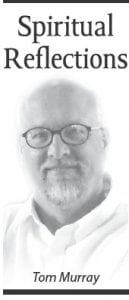I did something last week that I hadn’t done in a while. I assembled a storage cabinet that Denise and I bought at Ikea. I’m always amazed at how Ikea can fit an entire unassembled kitchen cabinet into a carton about the size of a shoe box. The trick, of course, is to follow pages of illustrations in the instruction book so that the pieces fit together perfectly.
The very first time I assembled an Ikea cabinet I got to about page 10 before I realized that something wasn’t right. And so I worked my way backward until I found where I had assembled a part upside down.
I had done it in a way that my own logic told me that it needed to be done. But doing it my way made everything that I did after that step completely opposite of how it was supposed to be. By the time I was half finished I was covered in sweat and contemplating buying an English to Swedish translation book so I could call up the factory and have a little chat with the people who designed it.
But once assembled, the cabinet was perfect. I realized then that the way it was designed is nothing short of ingenious. As I sat admiring my handiwork I started to think about why it had been so hard for me. I realized that the mistakes I had made were because I had started the project believing that I already knew how it should be done. Before I even opened the box I had my own predetermined idea of how it would go together based on how I have always done things. I used my own logic instead of Ikea’s logic, and that’s a bad combination.
So, before I put the next cabinet together I took a cleansing breath, and I tried to forget everything that I had ever learned about how this world works. It went together like clockwork. It was beautiful. Every one of its parts fit together seamlessly.
Jesus often told parables to describe what God’s kingdom is like, and it’s important that we approach these parables much as we might read Ikea instructions. We simply cannot fathom their depth and wisdom unless we are willing to first take a deep breath and forget everything we already think we know about how God enters into this world. We have to empty ourselves because Jesus’ parables are meant to undermine our preconceived notions of how God is. The parables of the sower, the mustard seed, the wise and foolish builders, the Good Samaritan, the welcoming father, and the lost coin are familiar narratives meant to confront us with startling, uncomfortable, and perhaps even unwelcome truths.
Whenever we are unwilling to approach Jesus’ parables with an open mind, they will always serve to reinforce our own vision of how we think that God should be. It’s then a very easy step to proclaiming that God is just like us. And if God is just like us, then God certainly can’t be like those other people who don’t behave like us, or look like us, or believe as we do.
When we interject our own world view onto Jesus’ parables, we grind the rough edges off and diminish their ability to transform us. We find ourselves proclaiming that God’s reign is just like our own view of how things should be.
That’s how we distort scripture into proclaiming that God would vote Republican or Democrat, that God rejects this philosophy and embraces that one, that God prefers this scientific world view over another, or that God loves these people more than he loves those people.
God is none of these things. We are these things. God transcends these things so that God can reach out to us where we are, love us, transform us, and invite us in. That’s humbling for us; and it should be.
The kingdom that is proclaimed through Jesus’ remarkable parables is a kingdom where God runs to greet us no matter how far we’ve fallen. It’s a kingdom where the least become the first, the discarded become the treasured, the hated become the beloved, and the lost become the found. All that is asked of us is that we first set aside our priorities, our prejudices, and our predetermined ideas, as if we are reading Ikea instructions.
Each month a member of the Cook County Ministerium will offer Spiritual Reflections. This month’s contributor is Tom Murray of the Lutsen and Zion Lutheran Churches.



Loading Comments